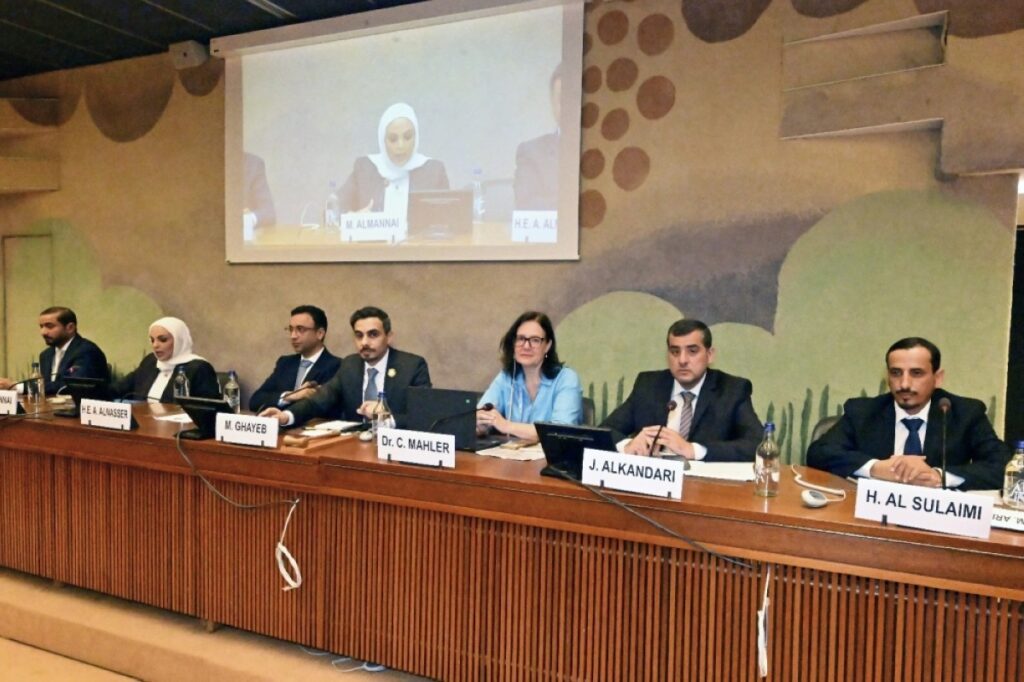GENEVA: Kuwait highlighted its long-standing commitment to elder care at a high-level international event held Thursday in Geneva under the title “Towards Safe and Dignified Ageing: Protecting Older Persons Amid Demographic and Social Changes.” Speaking at the side event of the 59th session of the UN Human Rights Council, Dr Jasem Al-Kandari, Assistant Undersecretary for Social Care at Kuwait’s Ministry of Social Affairs, emphasized Kuwait’s support for regional and international efforts to promote the rights of older persons. “Kuwait’s presence in this international forum reflects its ongoing commitment to enhancing the rights of older adults, exchanging experiences, and developing social policies in partnership with international organizations and civil society,” Al-Kandari told Kuwait News Agency (KUNA) following his participation.
He underscored that improving the lives of older people is a key pillar of Kuwait’s social policy — and of the broader GCC region — recognizing this segment of the population as “a vital foundation for development and a rich source of experience and values.” During the event, Al-Kandari presented on “GCC Policy Trends in Elder Care Amid Demographic and Social Challenges,” spotlighting the progressive steps Kuwait and neighboring countries have taken.
He specifically highlighted Kuwait’s pioneering approach, which focuses on “enhancing quality of life for the elderly, guaranteeing their rights, and providing a safe and supportive environment in the face of accelerating social and demographic shifts.” Al-Kandari pointed out that Kuwait’s history in elder care dates back to 1955, noting “significant progress in the legislative framework” including the creation of a specialized Elder Care Department and the adoption of advanced laws to protect this group.
Kuwait’s efforts are grounded in both historical commitment and constitutional obligations. Article 11 of the Kuwaiti Constitution explicitly states that the state “shall guarantee aid to citizens in cases of old age, illness, or inability to work, and shall provide them with social insurance, social assistance, and medical care.”
In a 2024 statement to KUNA, Minister of Social Affairs, Family and Childhood Affairs Dr Amthal Al-Huwailah emphasized that “Kuwait spares no effort in ensuring the highest levels of dignity and well-being for older people,” citing the services provided by the Elder Care Department, including preventive and curative care, educational and training opportunities, and support systems for families to better care for elderly relatives.
The country’s current infrastructure includes six specialized mobile service centers, with one full-service elder care hub in each of Kuwait’s six governorates. These centers provide a mix of social, medical, psychological, physiotherapy, nutritional counseling, and spiritual guidance. In August 2024 alone, the Elder Care Department served 3,888 individuals through non-residential programs and cared for 17 residents in its full-time facilities.
Recent expansions include launching a mobile elder care unit in Hawally, opening new multipurpose spaces for seniors in West Abdullah Al-Mubarak and Ferdous, and piloting a new initiative to integrate elderly residents with children from family care institutions to enhance social and emotional wellbeing. Al-Kandari also pointed to Kuwait’s long-standing legal and policy framework. “Kuwait’s historical experience in elder care dates back to 1955,” he said, highlighting laws like Elder Care Law No 18 of 2016 and the creation of a dedicated Elder Care Department.
Kuwait’s system offers residential care, day programs, rehabilitation, home visits by mobile medical teams, and services like the Priority Card, which eases access to public transport, healthcare, and facilities. According to local Arabic-language media, the country operates 22 mobile healthcare teams, ensuring seniors are served wherever they live. “Kuwait places older persons at the center of its social policies, recognizing their key role in the social fabric and working to safeguard their dignity and participation,” Al-Kandari said. — KUNA

